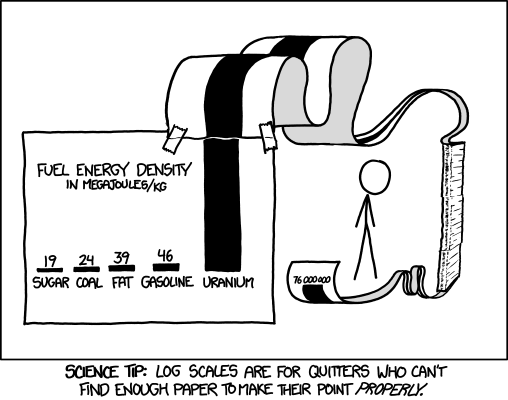Except even if you scaled up nuclear accidents, the impact is still far less.
Fukishima - zero killed - impact to public mostly out of abundance of caution.
TMI - zero killed - zero impact to public
Chernobyl is the ONLY commercial nuclear disaster in the world which had casualties. The worst U.S. nuclear incident was actually in Idaho in the experimental days of nuclear, on a national lab site. 3 people were killed, small amounts of radiation were released.
And when you start comparing industry injury rates from mining uranium on through power production, vs. gas drilling on through power production, the differences become more stark. We're not talking huge explosions which make the news, we're talking regular old safety of workers.
You could get into the indirect health effects that are difficult to prove. People get cancer around TMI, and they will around Fukishima as well. Rates higher than the general population? Not statistically, but it's hard to say with any certainty that it didn't contribute to any individual case. That said, if you use that, you also have to use indirect effects of gas drilling. Wastewater diluted in rivers - used for drinking. Air quality around drill sites. CO2 emmissions and global warming. Other airborn emmissions from power plants. Etc.
Pollution: Gas creates many times the amount of waste than nuclear. Tailings, wastewater, etc. Nuclear waste, while lower in volume, is TREATED as more dangerous, but 99% of it isn't. And with nuclear, the volume of fuel is so small that transportion isn't a big issue. Doesn't require pipelines and all the associated manufacturing pollution. CO2 emmmissions at the plants themselves are nil, as are other airborn pollutants.
Nuclear is cleaner and safer than gas, and that's with us making poor choices around it. It could be even safer and cleaner, with less dangerous and less volume of waste. All we'd have to do is build more modern designs, and recycle the waste (ALL of the high level waste is more fuel, which would decrease in volume 100x and be far lower grade afterwards to boot). It COULD also be cheaper, if we approved a single design, once, and built it many times. France does this. Our high nuclear costs are due to aging plants, and expensive red tape to upgrade or build new.
I'm a proponent of gas, it's the next best thing, certainly better than coal and oil. And it's a bad idea to go too heavily on only one source of power. But IMO, nuclear is better.





